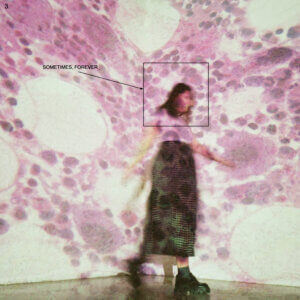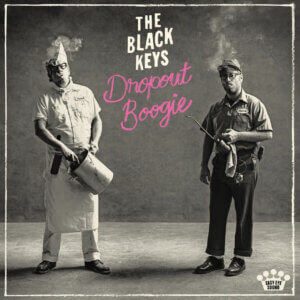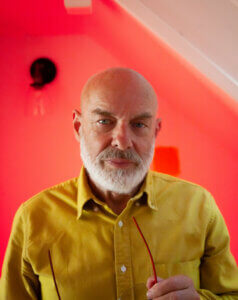
8
American Utopia
David Byrne
David Byrne’s latest album American Utopia developed in tandem with his website Reasons toBe Cheerful, a collection of audio, videos, news pieces, and lectures that reflect positive activity in civil engagement, environmentalism, culture, economics, education, health, science, and urbanism.
Typical of Byrne, American Utopia features multiple collaborators including Brian Eno, Daniel Lopatin (best known as Oneohtrix Point Never), and producers Rodaidh McDonald (The xx, King Krule, Adele) and Patrick Dillett (Nile Rogers, Sufjan Stevens). American Utopia also sets the stage for Byrne’s current tour of the same name which he promises is his “most ambitious since Stop Making Sense.” It’s easy to take his word for it when listening to American Utopia.
Across 10 tracks, Byrne and company create chamber-like moments often intruded by electronics. This can sound chaotic. Opener “I Dance Like This” takes sharp turns back and forth between inviting, twinkling piano and coarse electronics with robotic vocals. As the song progresses, Byrne’s digitized voice creeps into the piano segments. On the foreboding “Doing the Right Thing”, a note-picked guitar melody floats over tenuous strings, and then an unexpected curtain of fuzzy electronics drapes over it all. Byrne sings, “I’m always doing the right thing,” but like the strings, his confidence sounds shaky.
Byrne describes slow motion tableaus throughout American Utopia. On “Bullet”, he traces the trajectory of a bullet as it passes through a human body. The language he uses to describe the bullet is active: “The bullet went into him / Travelled up into his head / Through thoughts of love and hate / The living and the dead/ … The bullet went its merry way.” However, the language he uses to describe the victim is passive: “Skin that women have touched.” Musically, “Bullet” is upbeat, but especially considering the frequency of mass shootings across America, it’s discomforting listening to Byrne describe this moment of entry in such protracted detail that it’s almost frozen in time.
Elsewhere on American Utopia, Byrne speculates about alternative perspectives with humour. On “Every Day Is a Miracle”, he moves through the thought processes of a chicken, a cockroach, an elephant, and a human tongue. He might get carried away inhabiting the minds of these organisms (and organ), but he is often plainspoken too, sometimes within the same song: “Love one another,” he sings here.
“Gasoline and Dirty Sheets” supports immigration. More specifically, “Gasoline and Dirty Sheets” criticizes anti-refugee sentiments. “Vacuum-packed, don’t rock my world / And the money-back guarantee don’t make my day,” he sings in the opposition’s voice. But in his own voice, he defends giving displaced persons opportunities in a new country, pointing out everyone’s potential to not only rebuild their lives but to flourish and contribute to society.
“Dog’s Mind” condemns passivity, blind obedience, and willful ignorance. Members of the press take orders from an unnamed president who tells them what to say and releases them from the session like dogs into a yard. The presiding judge is hungover, “so he didn’t really notice when things got out of hand.” Office clerks stare out their windows at dogs in a park. Both species are “dreaming all day long, happy all day long.”
David Byrne insists the album title is not ironic. “The title refers not to a specific utopia, but rather to our longing, frustration, aspirations, fears, and hopes regarding what could be possible, what else is possible,” he explained in a statement. “We look around and we ask ourselves – well, does it have to be like this? Is there another way? These songs are about that looking and that asking.” But it is ironic that although he supports equality and diversity, he has recently been criticized for having collaborated with zero women on American Utopia. He heldhimself accountable in an apologetic note, but his falter remains a potent reminder that it takes greater mindfulness and more concerted practice than even best intentions sometimes allow to achieve true utopia.
review by Leslie Chu
Latest Reviews
Tracks
Related Albums
Related News
Advertisement
Looking for something new to listen to?
Sign up to our all-new newsletter for top-notch reviews, news, videos and playlists.














